The hottest business stories of 2018
- Published
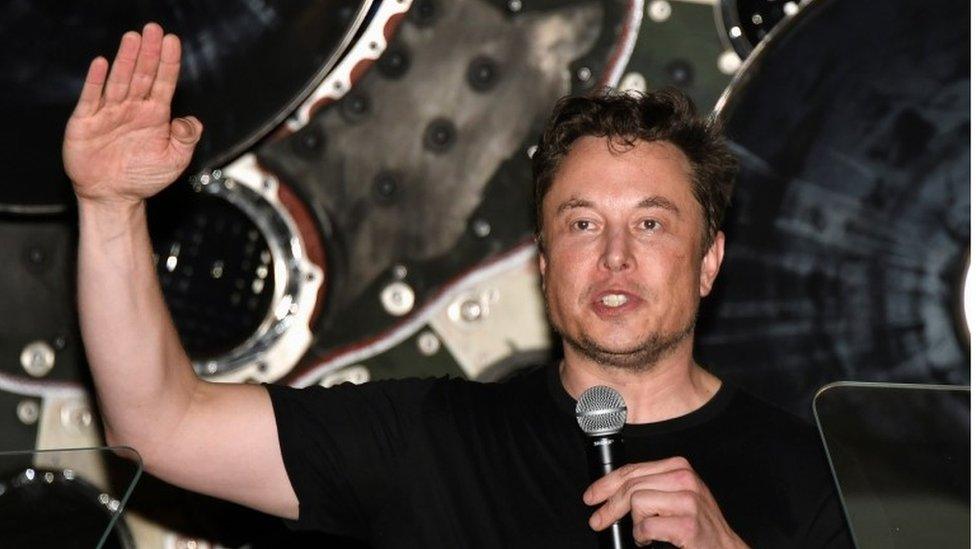
Kylie Jenner, Donald Trump, Elon Musk. Snow, heatwaves, hugging and the collapsing UK High Street. There were no dull moments in business over the past 12 months.
Here are the most-read business stories of 2018.
January
A grim start to the year with news that one of the biggest providers of UK public services was foundering. It wasn't a household name.
Carillion ran into trouble after losing money on big contracts and running up debts of around £1.5bn. If we had been in the dark about the company's importance before this, we were soon enlightened.
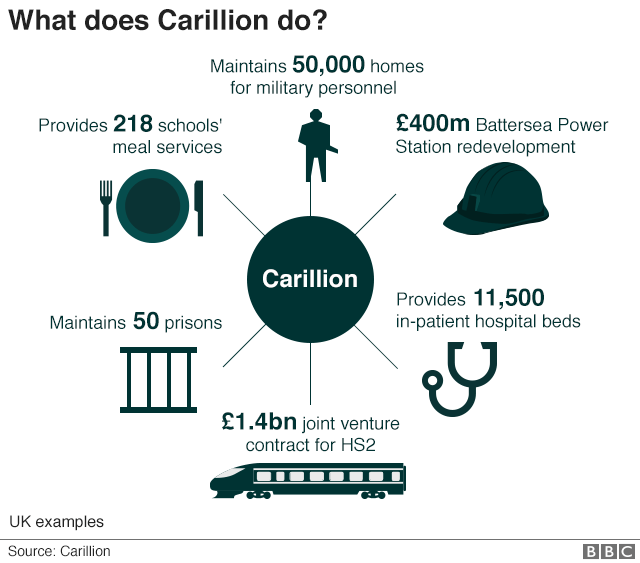
Not content with hoovering up increasing amounts of our retail spend online, internet behemoth Amazon made one of its increasing ventures into the physical retail environment when it opened supermarket without checkouts. With three million hits Amazon proved it draws the clicks for readers as well as shoppers.
Meanwhile, Christmas trading updates revealed the losers as Marks & Spencer, House of Fraser and Debenhams. Spoiler alert: they ended the year in that camp, too.
Financial Times journalist Madison Marriage: “I was groped several times”
And after running unremarked for 30 years the Presidents Club charity fundraising dinner, suddenly went beyond the pale. Financial Times reporter Madison Marriage went undercover as a waitress at the event and said she was groped "several times", which led to the organiser of the dinner quitting his post on the Department for Education board.
This was an early sign of one of the key themes of the year as the #MeToo movement really got going.
February
"Angry, sad, disappointed and hungry": We talk to KFC customers
KFC caused "chicken chaos" for four million readers when it closed more than half of its 900 UK outlets after delivery problems meant the chain ran out of chicken. It had recently switched to using DHL for its deliveries. DHL blamed "operational issues" for the supply disruption. Rather a literal statement.
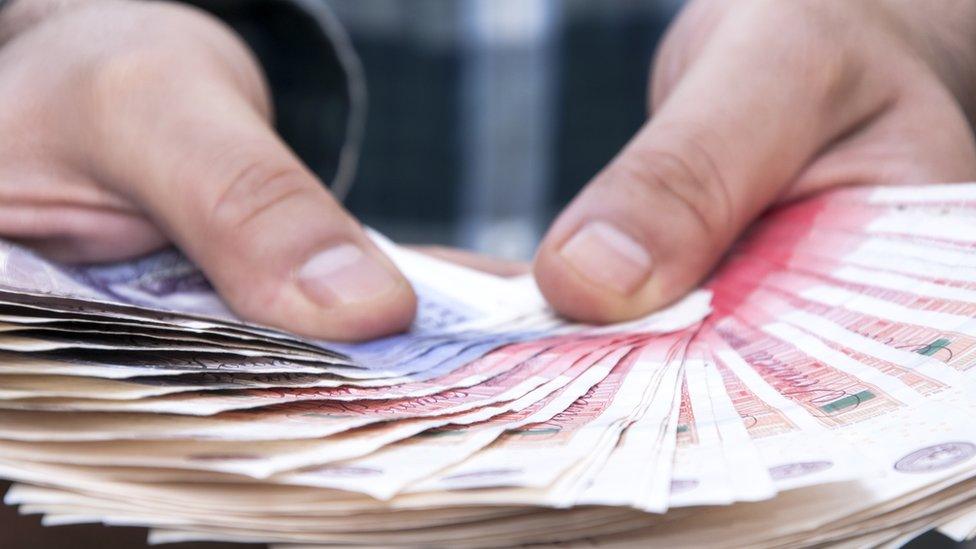
A real poser here: Should everybody get £10,000? This intriguing idea came courtesy of the Royal Society for the encouragement of the Arts, Manufactures and Commerce (RSA). Is it enough to live on? Will it encourage laziness? Where can I get £10,000 - all reasons to click on this tale.

The power of the influencer. If there was anyone left who doubted the influence of the Kardashian family they were in doubt no longer. A tweet from Kylie Jenner hammered Snapchat's shares, wiping $1.3bn (£1bn) off developer Snap's stock market value when she said she no longer used its messaging app.
March
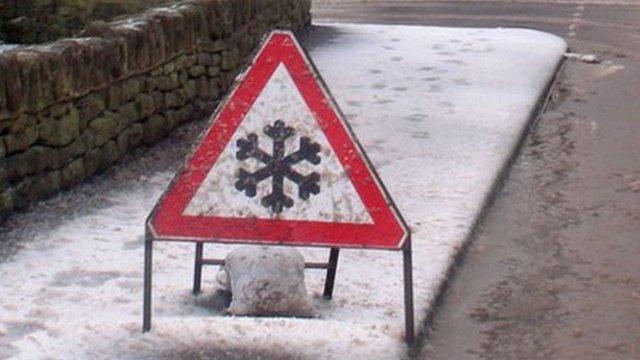
Time for a weather story. Enter the Beast from the East. Which prompted this thought: it's snowing - can I refuse to go to work? No. Well, sometimes. Oh, it DEPENDS! So many questions and not the answer you might have wanted. You did ask...
It took a few months before President Trump seriously caught the eye of our readers, but his move to put tariffs on $60bn in Chinese goods certainly did. And it continued to cause real setbacks to the Chinese and global economy as the war of the tariffs ramped up over the year.
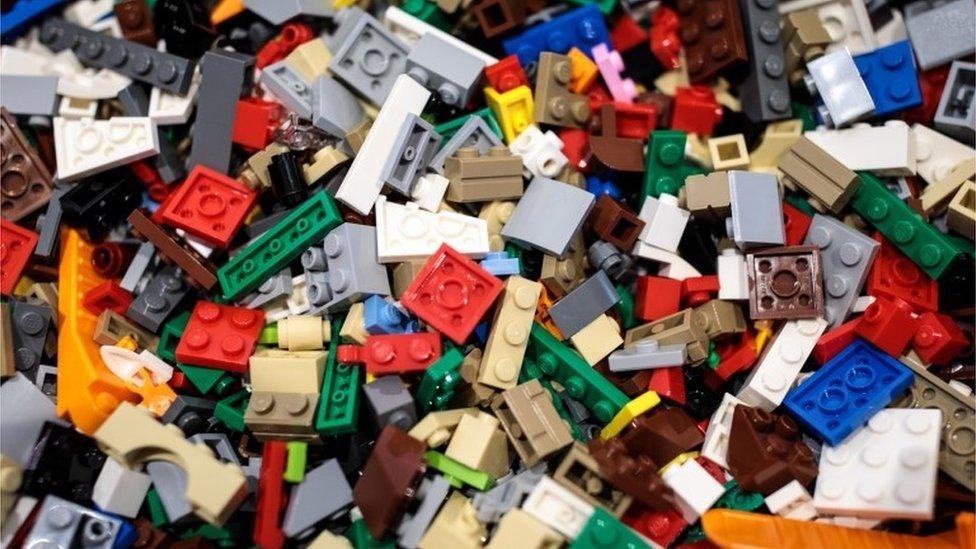
Perhaps someone should have tried earlier to curb Lego's production.
Too many Lego bricks is a problem many parents will sympathise with, but the toy firm itself had to admit it had made too many. Or mined too many. You decide.
April
The biggest retail story of the month was the surprising news that two leading supermarkets, Sainsbury's and Asda, were in merger talks. One analyst called it a "game changer in the UK grocery market of epic proportions". It still needs regulatory approval. That's expected in late January.
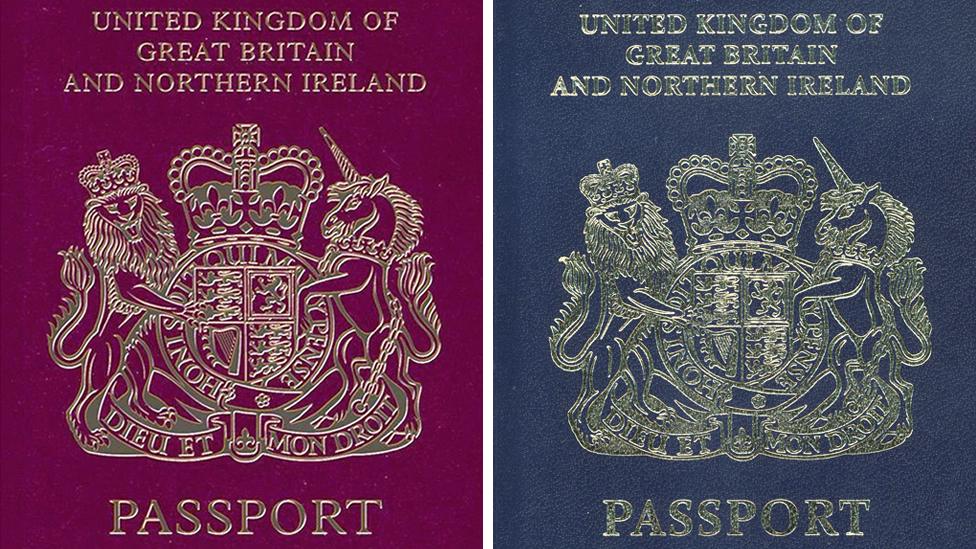
Enter Brexit. Very late into the year. One suspects there were so many stories that eyeballs were spread thinly across them.
Passports concentrated the mind. British company De La Rue - which had lost the £490m contract to print the new British post-Brexit passports to French-Dutch Gemalto in March - had requested a "standstill period" to try to regain the contract. This was granted. It still didn't win it.
May
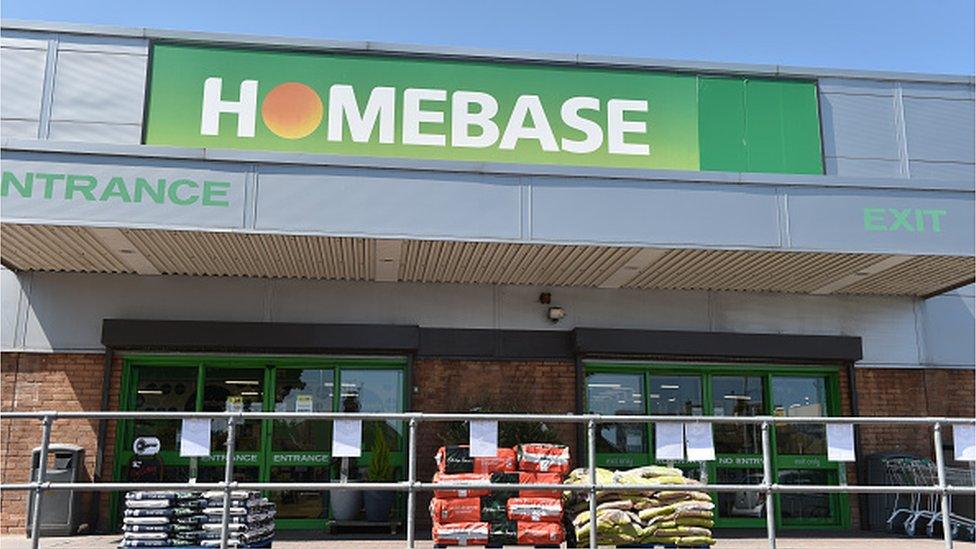
DIY disaster as Homebase sold for £1! We've all been here with a DIY project. Starts off promisingly then you realise there's a bit more work than was anticipated.
The optimists here were the Australian firm Wesfarmers. It paid £340m for the retailer two years ago, but losses and other costs ended up giving it a total bill of about £1bn. One analyst called the takeover an "unbelievable disaster".
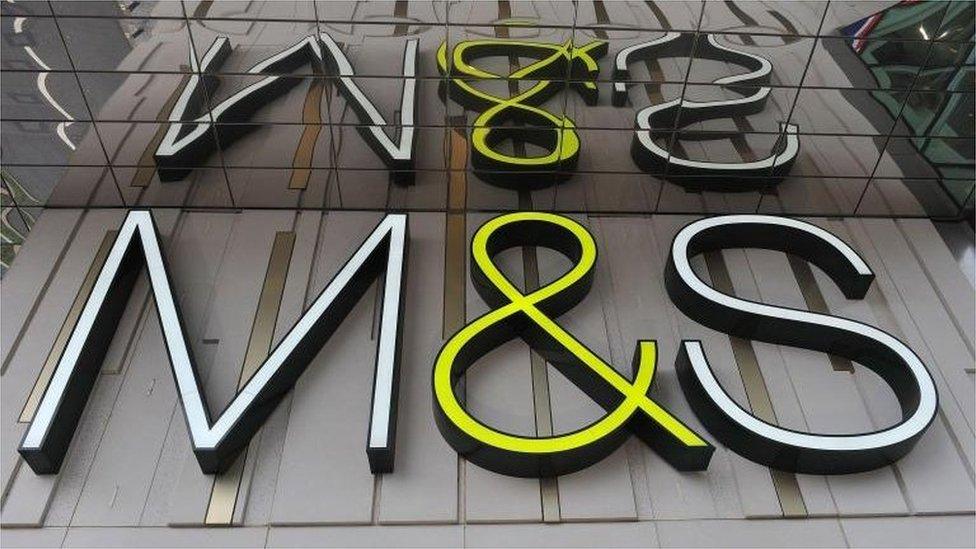
Retail's epic dreadful year saw bad news for some small towns, too. Marks & Spencer said it would close 100 stores by 2022, leaving some High Streets without a flagship store.
This theme continued into the year when Debenhams said it would close about a third of its stores and House of Fraser about half of its outlets.
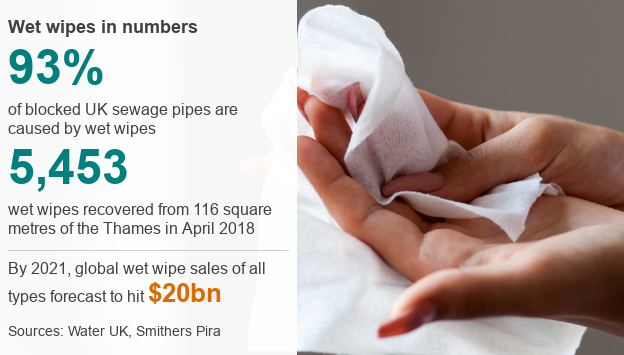
And this story caused sinking feelings for parents everywhere. Wet wipes, used for cleaning sticky fingers and just about anything else, could themselves face wipeout as the government declared war on single-use plastic.
The wipes contain non-biodegradable plastic and are the overwhelmingly main component of sewer-blocking fatbergs. Lovely.
June
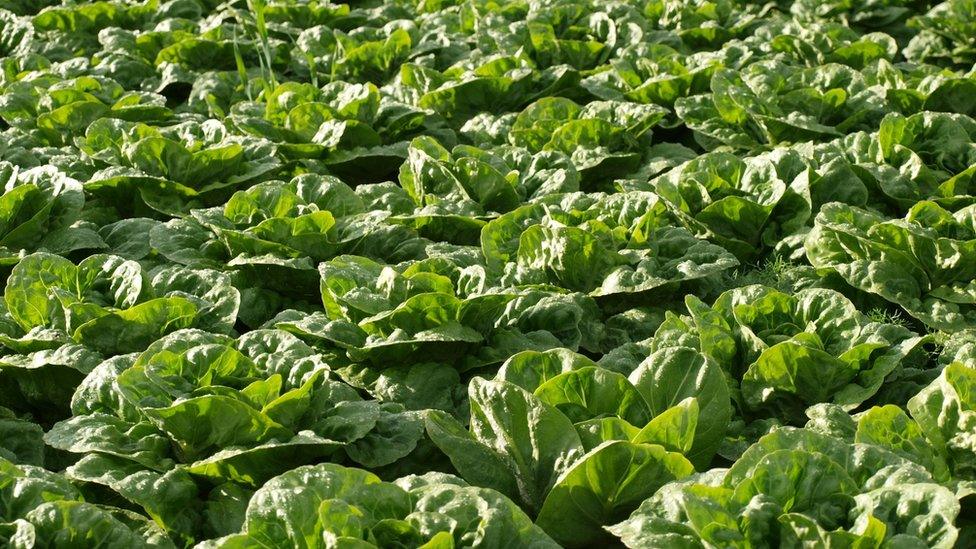
Back to the weather. The summer brought some frightening news: the heatwave that had blazed for weeks prompted lettuce growers to warn of an imminent shortage.
We became friends with the trade body the British Leafy Salad Growers Association (BLSGA) who warned the heat was causing "havoc" for growers. Broccoli and cauliflower were also having a hard time of it.
Our next story could hardly be further (in tone, in origin?) from the farmers' field. The cash payments system Visa went down in June and was the second best-read story of the month.
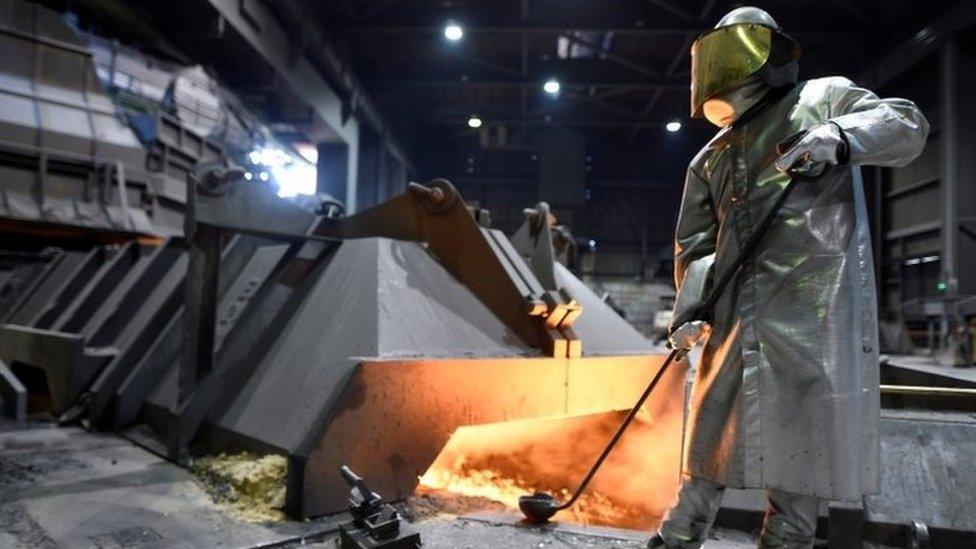
President Trump's tariffs on European products also caught the eye of the reader. The US is playing a "dangerous game" by slapping tariffs on European steel and aluminium, said the EU's trade commissioner.
The EU issued a 10-page list of tariffs on US goods ranging from Harley-Davidson motorcycles to bourbon.
July
And as the heatwave continued: peas were now under threat of shortage.
More startling facts: the UK, it turns out, is the biggest consumer of peas per head in Europe, and it is also the biggest producer of peas for freezing. But, things were looking up elsewhere: we learnt that by then life for the lettuce had begun to improve.
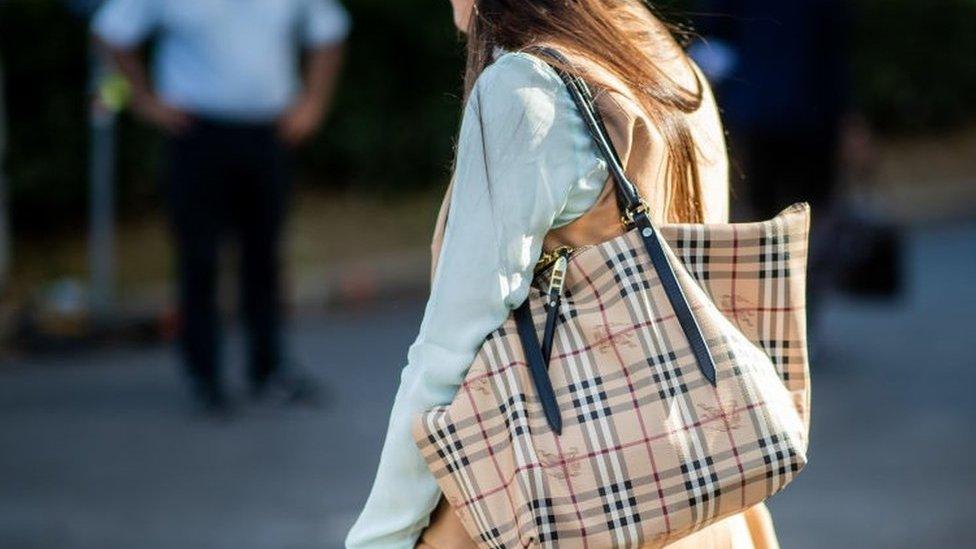
One of the other biggest hits with our readers was the news that Burberry had burned luxury goods worth millions. It appalled the growing taste for cutting down on waste, though Burberry did say that the energy generated from burning its products was captured, making it environmentally friendly.
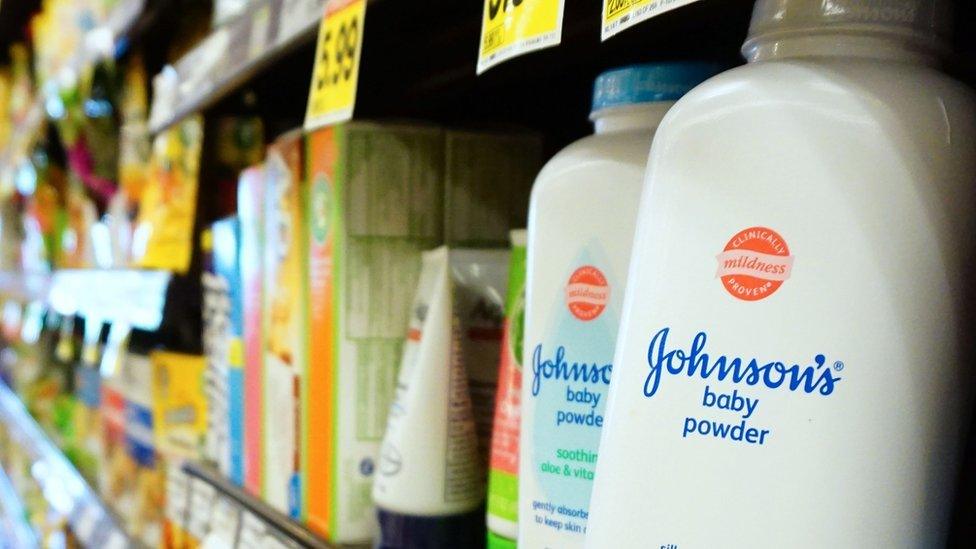
Startling news from personal care giant, Johnson & Johnson, which was ordered to pay $4.7bn (£3.6bn) in damages to 22 women who alleged that its talc products caused them to develop ovarian cancer.
The women's lawyers alleged the company knew its talc was contaminated with asbestos since the 1970s but failed to warn consumers about the risks.
J&J said it was "deeply disappointed" and planned to appeal.
August
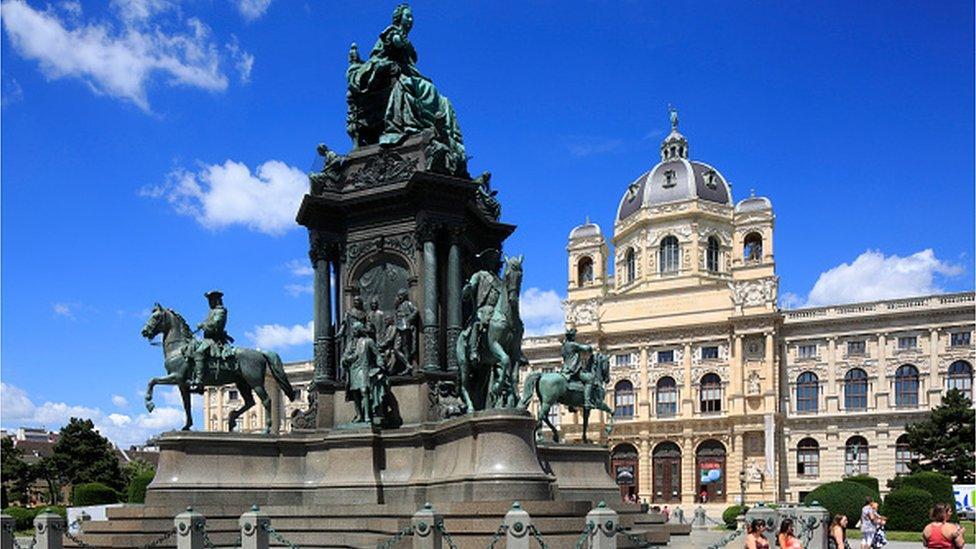
Stories about the "world's best places" always score very highly in readership numbers. This year's offering from the Economist Intelligence Unit was no exception, attracting more than a million views. Vienna was named the winner - the first time a European city topped the rankings of the annual survey.
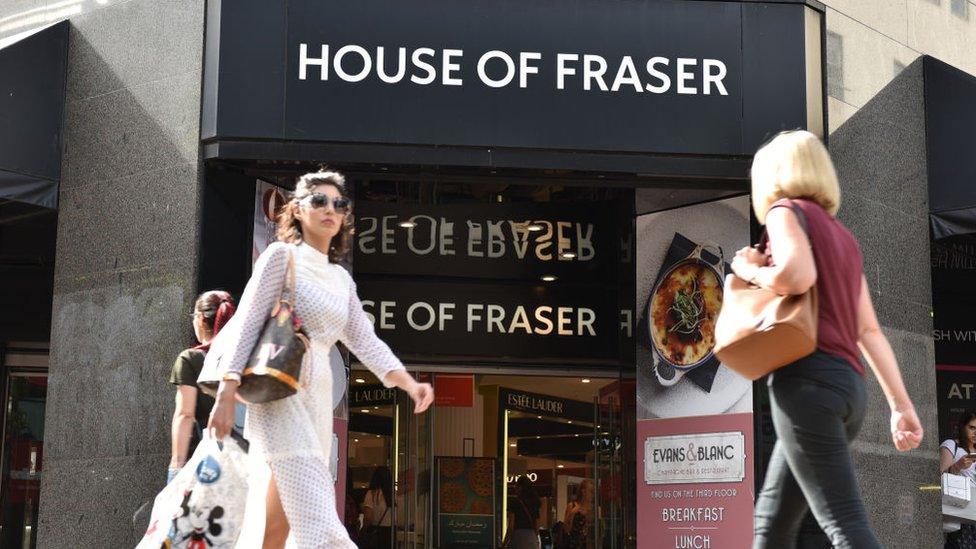
Meanwhile, retail entrepreneur and Newcastle United owner Mike Ashley was big news. His Sports Direct business bought troubled House of Fraser. He said he would make it "the Harrods of the High Street", curiously symmetrical as Harrods was once itself the flagship of the House of Fraser chain.
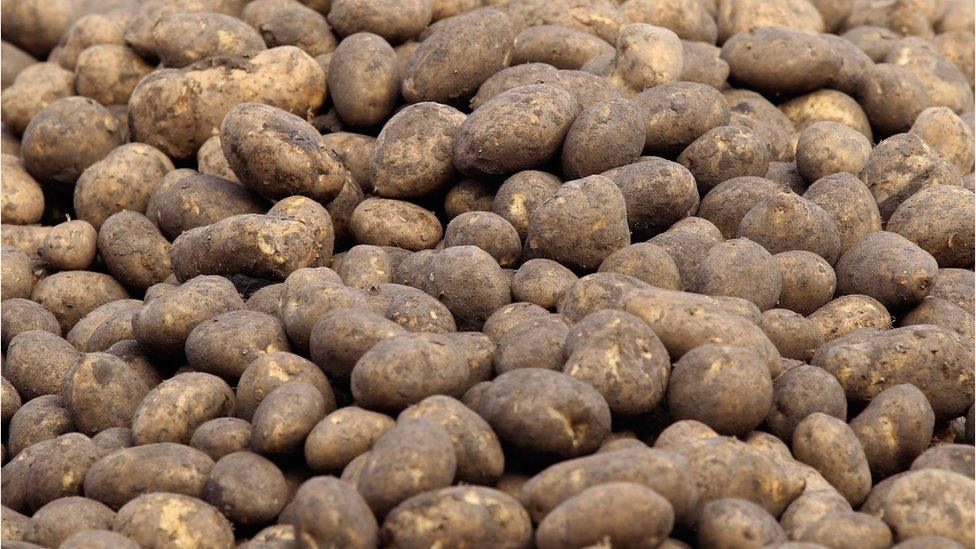
And the heatwave was still going. This time it was potatoes that saw prices rising thanks to a shortage caused by an unusually cold winter, followed by that scorching summer.
September
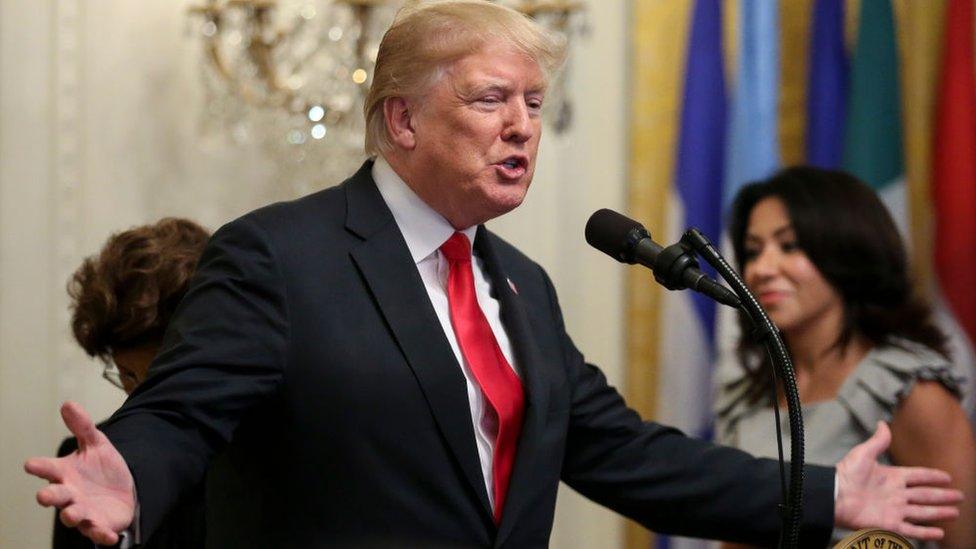
Another Trump trade development as China hit back at the US with fresh tariffs on $60bn of US goods in retaliation against US duties on $200bn of Chinese imports.
China this time targeted goods such as liquefied natural gas, produced in states loyal to the US president.
Who is Elon Musk?
Elon Musk paid the price for an ill-considered tweet, losing his position as Tesla chair.
A tweet stating he was considering taking the electric carmaker off the stock market and into private ownership and had funding secured at a price of $420 per share was the culprit.
Investor regulator the SEC said those claims were "false and misleading" and launched a fraud investigation. But Mr Musk stepping down as chair and paying a fine put things right as far as the SEC was concerned.
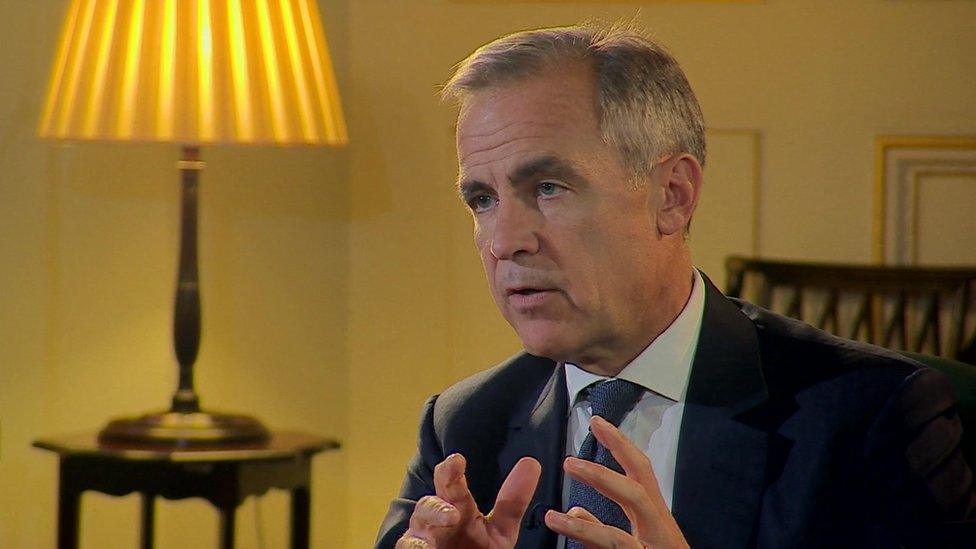
The economic impact of Brexit also hit the headlines this month. It was the mention of property that stirred the senses as Bank of England governor Mark Carney warned that house prices could plunge in the event of a no-deal Brexit.
October
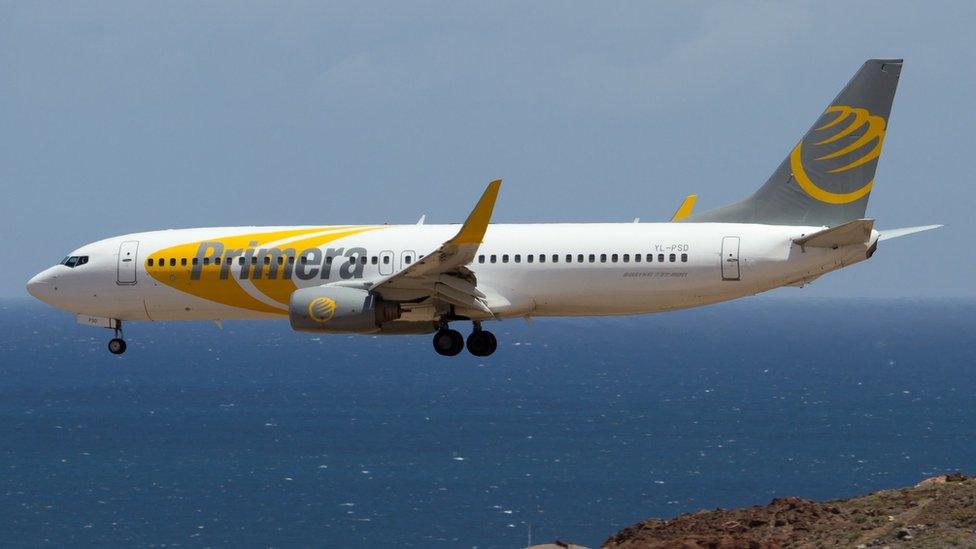
An alarming tale of a collapsed airline caught the attention of millions of readers. Even though Primera was hardly a household name. Not surprising as it has only 14 planes and is based in Denmark with most of its business serving Scandinavian passengers. But BBC website readers love a bit of aviation. And why not?
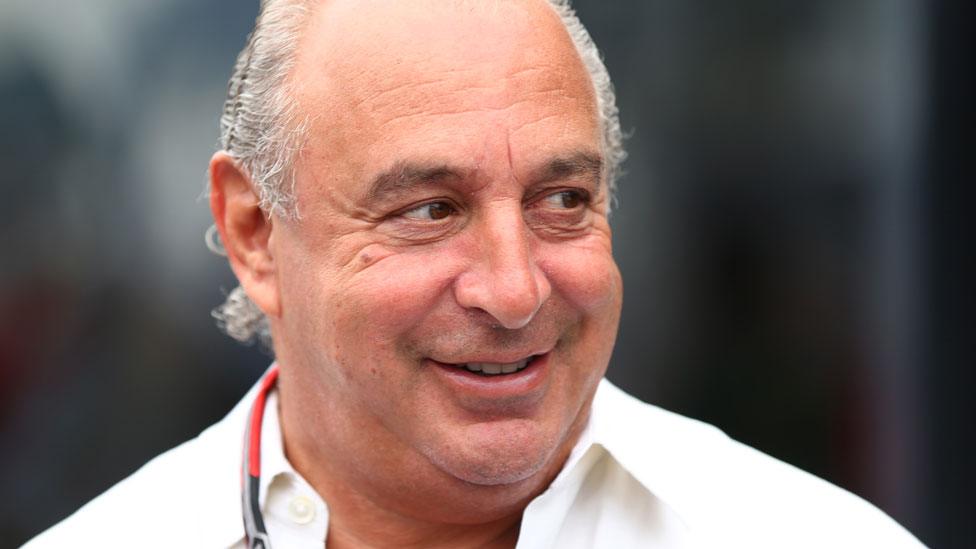
Here's a definitive household name and a firecracker of a story. Sir Philip Green was named over harassment claims. This followed days of guesswork after the Daily Telegraph said "a leading businessman" was being accused of acting wrongly. Sir Philip denies the allegations.
Readership numbers for the annual set piece that is the Budget are always high. And so it was this year with the main headline being: Chancellor turns on the cash taps.
November
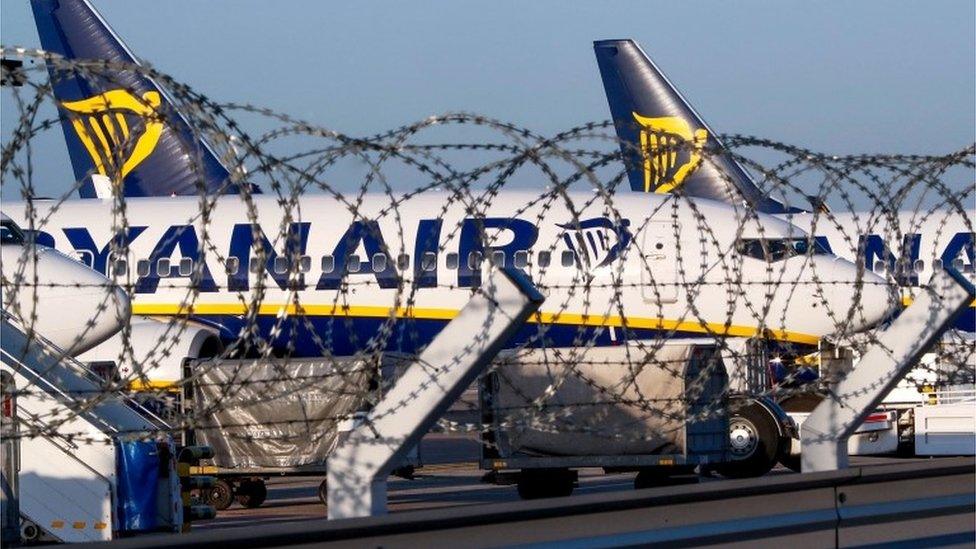
Planes again. A Ryanair plane was seized by French authorities in a row over money.
The dispute was caused by French subsidies paid to Ryanair for flights from Angoulême regional airport between 2008 and 2009, which the European Commission later deemed illegal.
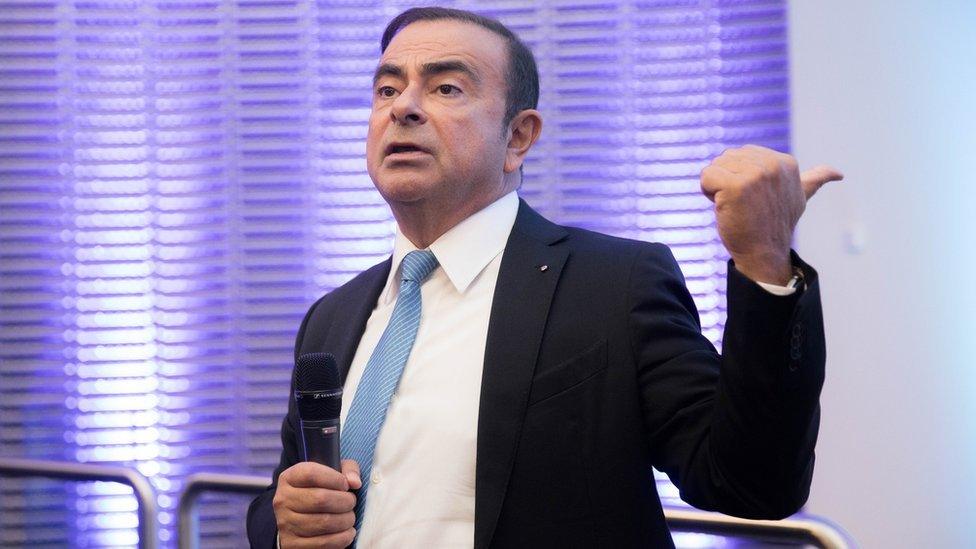
Meanwhile, in Japan the car industry was hit by a bombshell: the Nissan boss Carlos Ghosn was arrested over claims of financial misconduct. Mr Ghosn, a "towering figure" in car manufacturing, was at the helm of the three-headed Nissan-Renault-Mitsubishi partnership.
Nissan and Mitsubishi both later sacked him as chairman. Mr Ghosn has denied the accusations against him.
And... Brexit again. This time new government analysis suggested the UK economy could be up to 3.9% smaller after 15 years under Theresa May's Brexit plan, compared with staying in the EU. But, it said, a no-deal Brexit could deliver a 9.3% hit.
Mrs May's response? She said her deal was the best one available for jobs and the economy.
December

When the O2 network crashed the country was all but stopped in its tracks. Well, the 25 million O2 users were. People were unable to use mobile payments, SatNavs, call or email contacts, and countless other things that we were barely aware had made our mobiles the centre of our lives.
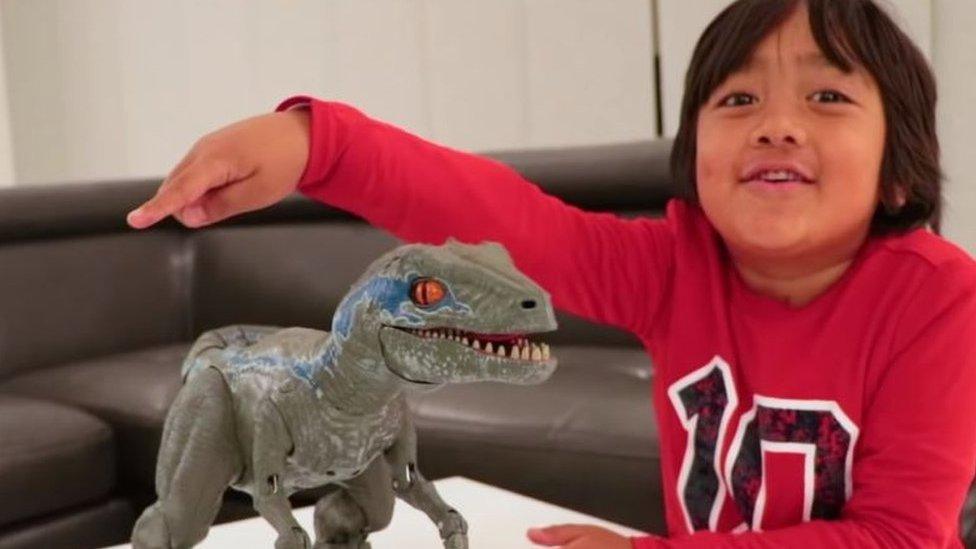
One of the best-read stories of December was about a seven-year-old making $22m on YouTube. Little Ryan's toy reviewing business (set up by his parents) has made him very rich.
Happy for you, Ryan.
And back to the beginning. Employees complaining of unwanted physical contact. Staff at Ted Baker alleged there was a culture of "forced hugging" by the firm's founder and boss, which they are now demanding be ended.
The fashion group said hugs were part of Ted Baker's culture, but were absolutely not insisted upon. An independent investigation is being carried out.
Happy New Year.